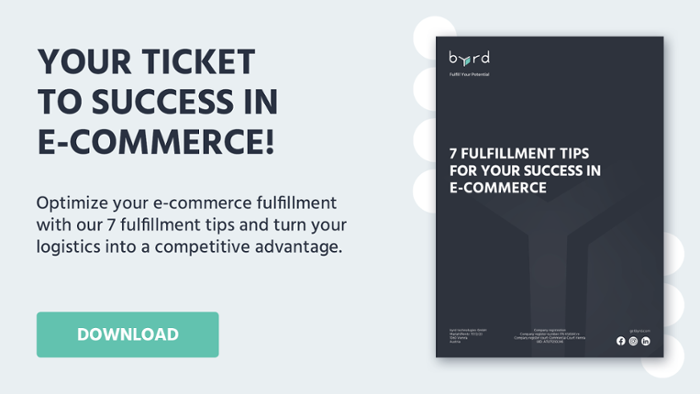Amazon FBA: Pros and Cons of Using Fulfilled by Amazon in the UK
Fulfillment by Amazon, commonly referred to as FBA, has earned a universal reputation in the e-commerce industry. Nevertheless, for many, navigating the intricacies of this Amazon fulfilment method in the UK can be a different experience compared to the United States. In this concise overview, we will delve into the costs, benefits, and drawbacks of utilizing Amazon FBA, tailored specifically for a British audience.
How to Use Amazon’s FBA Method
FBA, which stands for Fulfilled by Amazon, entails Amazon taking charge of product storage, order processing, and customer support. To employ FBA in the UK, follow these steps:
- Establish an Amazon Seller account.
- Add the FBA feature to your account.
- Create your Amazon Product Listing and Inventory.
- Prepare your products for shipment to an Amazon Warehouse.
- Dispatch your products to a warehouse.
Prerequisites for Using FBA
Amazon enforces stringent regulations for FBA sellers, with some specific to each product category. More detailed information can be found here. Some overarching requirements include:
- All products must be barcoded.
- use six-sided boxes.
- boxes need to be made of rigid cardboard.
- Warehouse workers do not assemble orders.
Amazon FBA Costs in the UK
In the UK, you have two Amazon selling plans to choose from:
FBA Individual Plan
- £0.75 per sale of an item on Amazon.co.uk, in addition to referral fees.
(Referral fees vary but generally range between 7.14% and 15.3%) - A minimum sales fee of £0.75 applies to most items.
FBA Professional Plan
- Monthly fixed cost of £25.
- Eliminates the £0.75 per item fee.
(It becomes cost-effective if you sell 34 or more products per month) (€39 in EU, meaning that it pays off when you sell 40+ items per month)
Amazon FBA Referral Fees in the UK
Referral fees vary by product category. Most categories have fees ranging from 7.14% to 15.3%, while accessories for Amazon devices have a higher fee of 45.9%. Additionally, a minimum sales fee of £0.75 (€0.30 in EU) applies to almost all items.
Storage Fees at Amazon in the UK
Storage fees in the UK are calculated based on cubic feet and vary by product category and season. Storage becomes more expensive towards the end of the year, with distinctions for clothing, shoes, bags, oversized, or dangerous goods. Fees range from £0.40 to £1.05 per cubic foot per month. (as of 2021)
How to Calculate Cubic Feet from Centimeters?
length (cm) × width (cm) × height (cm) ÷ 28316.85 = cubic feet.)
Additional Amazon Fulfillment Fees
There are various other fees that may apply, such as closing fees for media items, long-term storage fees, overage fees, removal order fees, and refund administration fees. Familiarise yourself with these fees to avoid unexpected expenses.

Advantages of Fulfillment by Amazon
- Time and manpower savings
- Fast delivery through Amazon Prime
- High visitor traffic
- Customer trust in the Amazon brand
- Protection of fragile products via Amazon's packaging
- Amazon handles returns
- Worldwide shipping flexibility
- Single global bank account
- Weekly payouts
Disadvantages of Amazon FBA
- Large quantities required for purchases
- Limited reimbursement for damaged product returns
- No control over return policies
- Co-mingling of products at Amazon Warehouse
- High and fixed storage costs
- Additional costs affecting profit margins
- Rising prices and stricter regulations
- Inventory planning challenges
- Stringent standards for new products
- Limited branding opportunities
- Competition, including from Amazon itself
- Loss of control over packaging and customer support
- Impersonal service
- No direct customer contact
- Limited payment method options
- Customers tend to attribute purchases to Amazon rather than your brand
So, while Fulfillment by Amazon presents enticing e-commerce opportunities, it comes with both advantages and disadvantages. Consequently, many e-commerce businesses seek alternatives to educe the dependency on Amazon, provide better service, and spotlight their own brands. These alternatives offer greater flexibility and the potential for higher profit margins.
So, what are the alternatives to Fulfillment by Amazon for UK-based e-commerce professionals?
Alternatives to Amazon FBA
- FBM & 3PL
- FBM & In-house Fulfillment
- SFP & 3PL
- SFP & In-house Fulfillment
Amazon FBM & Fulfillment Company (3PL)
Amazon's Fulfilled by Merchant (FBM) or Merchant Fulfilled Network (MFN) provides sellers with the capability to market items through the Amazon platform without relying on Amazon Fulfillment.
Online retailers are thus responsible for order processing themselves. In most cases, businesses turn to 3PL companies like byrd for this purpose. This not only enables a level of logistics akin to Amazon Fulfillment but also allows merchants to enjoy greater flexibility and reduced dependence on a single entity.
Hence, combining the FBM method with a 3PL company offers the best of both worlds. Moreover, it allows for the integration of additional sales channels, making collaboration with 3PL companies the optimal solution for a multi-channel strategy for many merchants.
Initiating this process is straightforward. A standardized Amazon fulfillment integration simplifies the connection between Amazon and byrd, making it easy to get started.
Amazon FBM & In-house Fulfillment
Alternatively, businesses can choose to handle order fulfillment in-house, particularly if they have relatively small sales volumes. However, as sales volumes increase, most entrepreneurs recognize the benefits of automating order fulfillment.
As a general rule, it is advisable to outsource logistics to specialists when handling around 100-250 shipments per month. This enhances fulfillment efficiency and delivery speed, freeing up valuable resources within e-commerce companies and boosting customer satisfaction.
Amazon SFP & Fulfillment Company
A third option allows sellers to combine the advantages of selling with the Amazon Prime badge, similar to the FBA option, while also benefiting from the advantages of the FBM method, including brand building, offering tailored solutions, converting first-time buyers into loyal customers, and data collection.
Some of the leading fulfillment companies offer Seller Fulfilled Prime (SFP) as a service. They assist in meeting the stringent logistical requirements necessary for acceptance into the SFP program.
Amazon SFP & in-house Fulfillment
For businesses that can meet Amazon's rigorous rules and are confident in their order fulfillment capabilities, in-house logistics is yet another option. However, this approach is best suited for enterprises with extensive experience and in-depth knowledge of logistics within their organization.
Summary of Amazon’s FBA Option
This article has addressed essential aspects of FBA, including how to use it, the requirements for utilization, and the associated costs in the UK. We have also explored the advantages and disadvantages of Fulfilled by Amazon and presented attractive alternatives.
In summary, while FBA offers a highly appealing e-commerce solution, it does entail a significant dependency on the American giant, Amazon. Consequently, many sellers are actively seeking alternatives to establish a broader market presence and reduce their reliance on a single platform. Additionally, alternative options provide greater flexibility and opportunities for brand development.
As a result, for many e-commerce enterprises, the optimal solution lies in combining the FBM or SFP methods with the services of 3PL companies.
